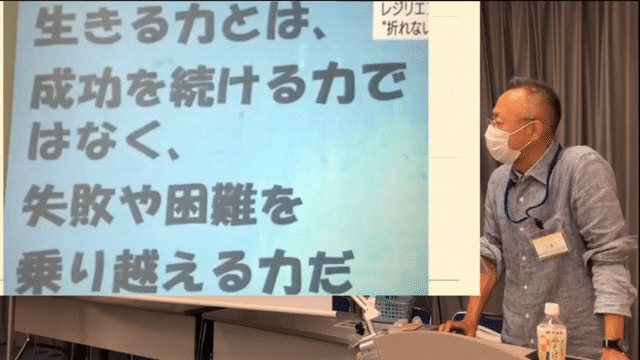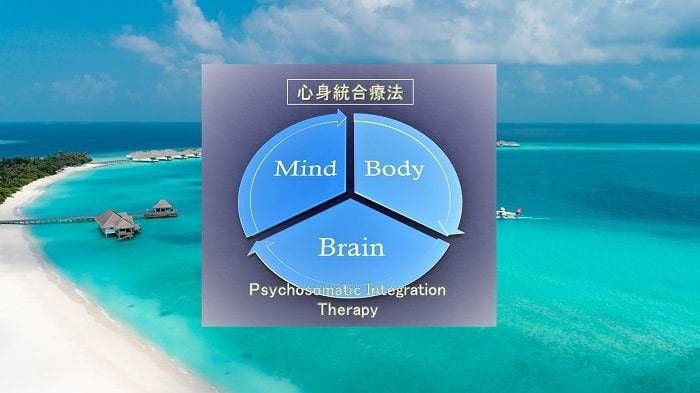
レジリエンスとは逆境力、回復力を意味する心理学用語であり、第2次世界大戦時のホロコーストを生き延びたユダヤ人のメンタリティに関わる調査、研究から生まれた概念です。
1970年代以降、様々な実験、研究を通してレジリエンスの個体差像が見えてきました。例えば、レジリエンスが低い人は物事に対して一喜一憂しやすい傾向があるのに対し、レジリエンスの高い人はそうした感情の揺れ幅が小さいとか、仕事の期限が迫ったとき「もう3日しかない」と「まだ3日ある」といった思考癖の違いなど…。

レジリエンスを高めるためのキーワードとして、「感情のコントロール」「自尊感情」「自己効力感」「楽観性」などが取り沙汰されていますが、これまでの研究のほとんどは個人を対象にしたものであり、社会レベルの集団を対象にした研究はありません。
そこで当会が提唱するのがソーシャル・レジリエンスという概念です。学校や会社といった組織から市町村といった自治体に至るまで、こうした集団規模のレジリエンスについて研究する領域があっていいのでないか、ひいては国家レベル、さらに言えば人類全体の問題としてレジリエンスを考えるという視座…。
これに関連して、既にSDGsというブレイクアウトがあるわけですが、この概念に付随する形で今後はソーシャル・レジリエンスについても検証していく必要があると思います。
持続可能な社会を考える上で、最も大事な視点はコロナ禍のような逆境に対して、弾性のある(しなやかに乗り越える)社会的システムの構築であり、同時にこれまでの常識が通用しない台風や集中豪雨、さらに火山噴火から地震に至るまであらゆる自然災害に対する防衛システムおよび復旧システムをどのように整備すべきかという視点も…。
いずれの問題においても、ソーシャル・レジリエンスという基礎的な概念が果たす役割は大きいはず。個人のアスリートにとって心技体が重要であるのと同様に、社会にとっても心技体が整っていることが重要です。そのための準備を今から始めるべきです。何事も遅すぎるということはありません。
ある有名Youtuberが「今日が人生にとって一番若い日」と連呼していますが、まさしく「国にとっても今が一番若いとき」なのです。
失敗を恐れて「失敗しない未来」をイメージするのではなく、光の未来を予期して「成功する未来」をイメージすることがソーシャル・レジリエンスの“はじめの一歩”だと、当会は考えます。
これは日本人に課せられた宿命のようなものかもしれません。世界有数の地震大国、世界有数の津波被害国、世界中の活火山の約10%を抱える国、歴史上唯一の戦争被爆国、地政学的に巨大な民主主義国家と同じく巨大な社会主義国家の狭間に位置する国でありながら、同時に戦後超爆速の経済復興を成し遂げた国、世界トップクラスの海洋国家、先進諸国の中で突出した森林率を誇る国、匠の技術(ミリ単位の精度感覚)を持つ国、ノーベル賞の世界ランキングでトップテンに入る国、こんな要因をすべて満たす国は地球上に一つしかありません。
ソーシャル・レジリエンス…、これを研究するに相応しい国は日本をおいて他にあるでしょうか。我々が今やるべきことは個人のレジリエンスを高めるのみならず、最終的には社会のレジリエンスを高めること、これに尽きると思います。
仮に「地球意識プロジェクト」の結果が正しいとするなら、日本国民が一斉同時にポジティブな想いを抱いたとき、素晴らしい何かが起きるかもしれません。
認知科学統合アプローチ(COSIA)に興味のある方へ
画像ラベリングと痛みの原因診断が乖離する現状において、世界疼痛学会(IASP)は痛みの定義を改訂し、「痛みの感情起源説」にシフトしています。
COSIAに興味のある方は是非一度「医療者・セラピスト専用サイト」にお越しください。貴殿のご参画をお待ちしております。


